-
Car Reviews
- All reviews
- Midsize SUVs
- Small cars
- Utes
- Small SUVs
- Large SUVs
- Large cars
- Sports SUVs
- Sports cars
- Vans
Latest reviews
- Car News
-
Car Comparisons
Latest comparisons
- Chasing Deals
The first small car from Mahindra might catch your eye with its segment-leading price, but does it earn every dollar you’re forking out?
While most car companies come to Australia and set up shop in our metropolitan cities and work their way out, Mahindra is a company that started in the outback and is working its way in.
First establishing itself in Queensland some 20 years ago as a tractor business, Mahindra slowly branched out to cars with the famously unkillable and regional fan favourite, the Pik-Up ute, followed much more recently by the Scorpio 4WD wagon and the more urban-centric XUV7OO midsize SUV.
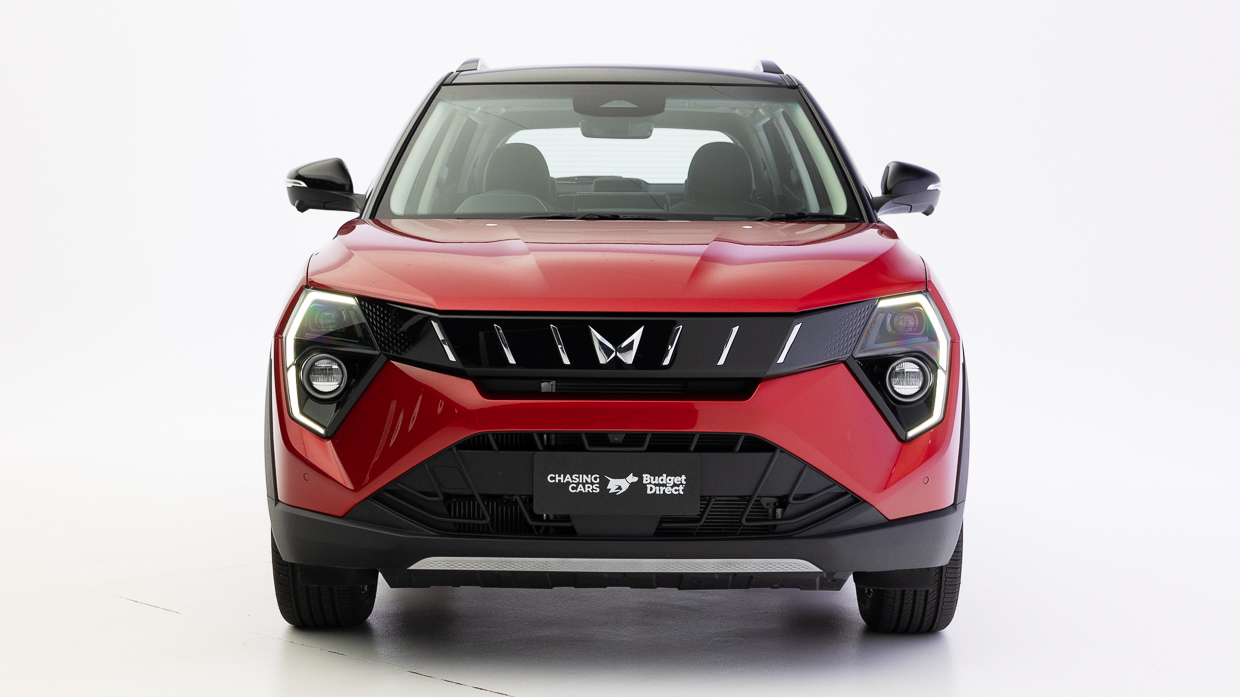
Neither has quite landed with a slam dunk in Australia, but the XUV7OO has shown some genuine promise in Chasing Cars‘ previous testing. It’s not perfect, but it presents a lot of value for suburban buyers with its circa-$40K asking price.
But it’s time for Mahindra to take a deeper step towards the inner city with its XUV3XO compact SUV.
Based on the X100 platform that dates back to 2015, the XUV3XO is a facelift of the XUV 300 that been very popular in its Indian homeland since 2019, but has been significantly updated to tackle wealthier markets with more money to burn such as Australia.
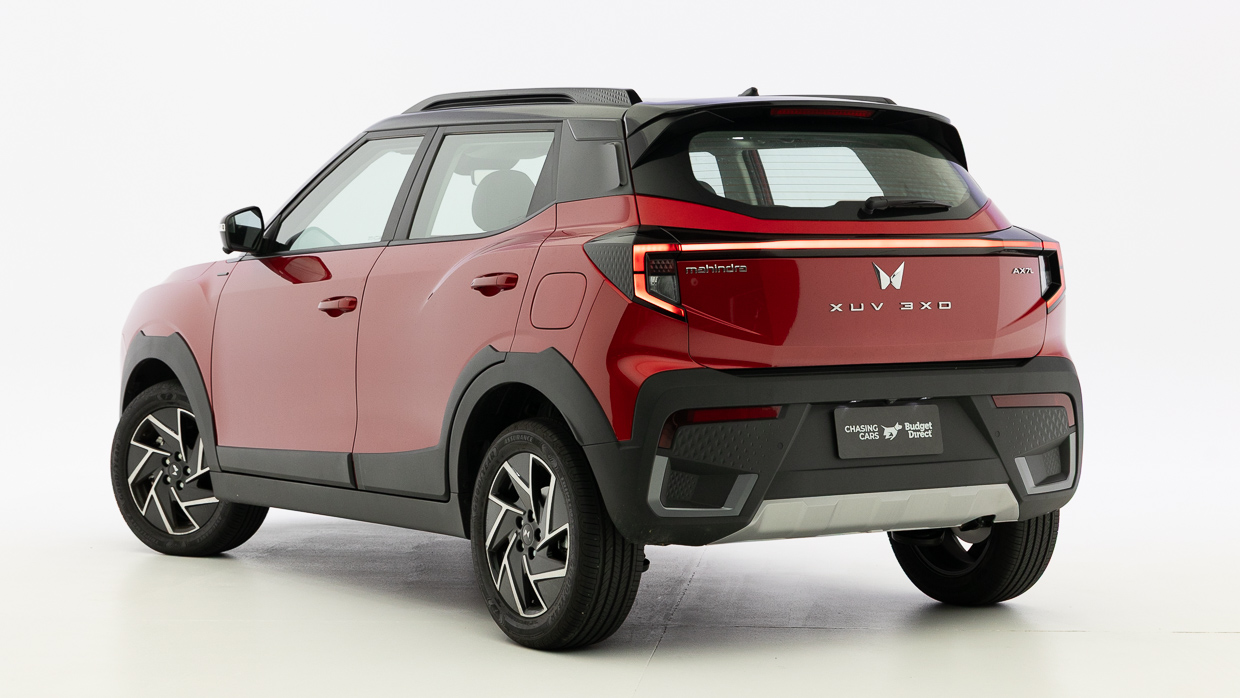
We’re not quite at the peak of the cost-of-living crisis anymore, but Aussies still love a bargain and with a price that crowns the XUV3XO one of the very cheapest SUVs in the country, could India’s answer to affordable motoring be what we’ve been waiting for?
The Mahindra XUV3XO presents as a well-equipped vehicle for the price, kicking off at $23,990 driveaway for the entry-level AX5L.
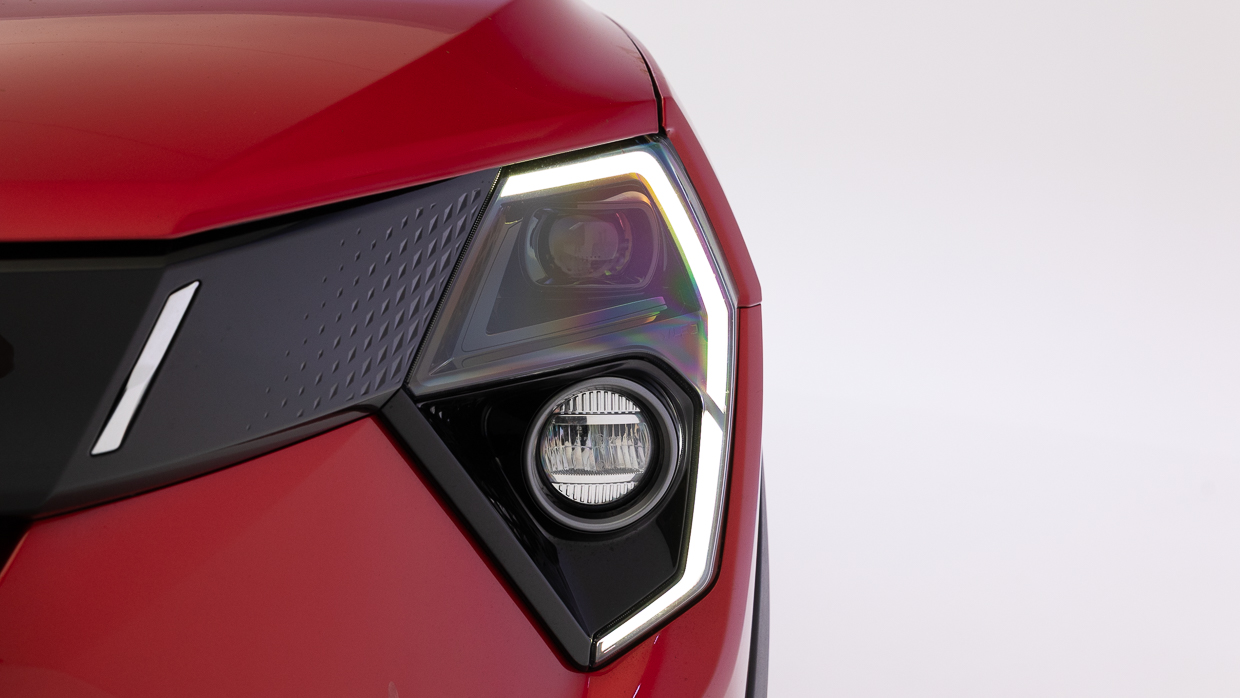
Standard features for the entry grade include:
But at $26,990 driveaway, the AX7L we have here on test offers a considerable step up in features for the $3000 upcharge. As a result, it’s expected to make up the bulk of XUV3XO sales.
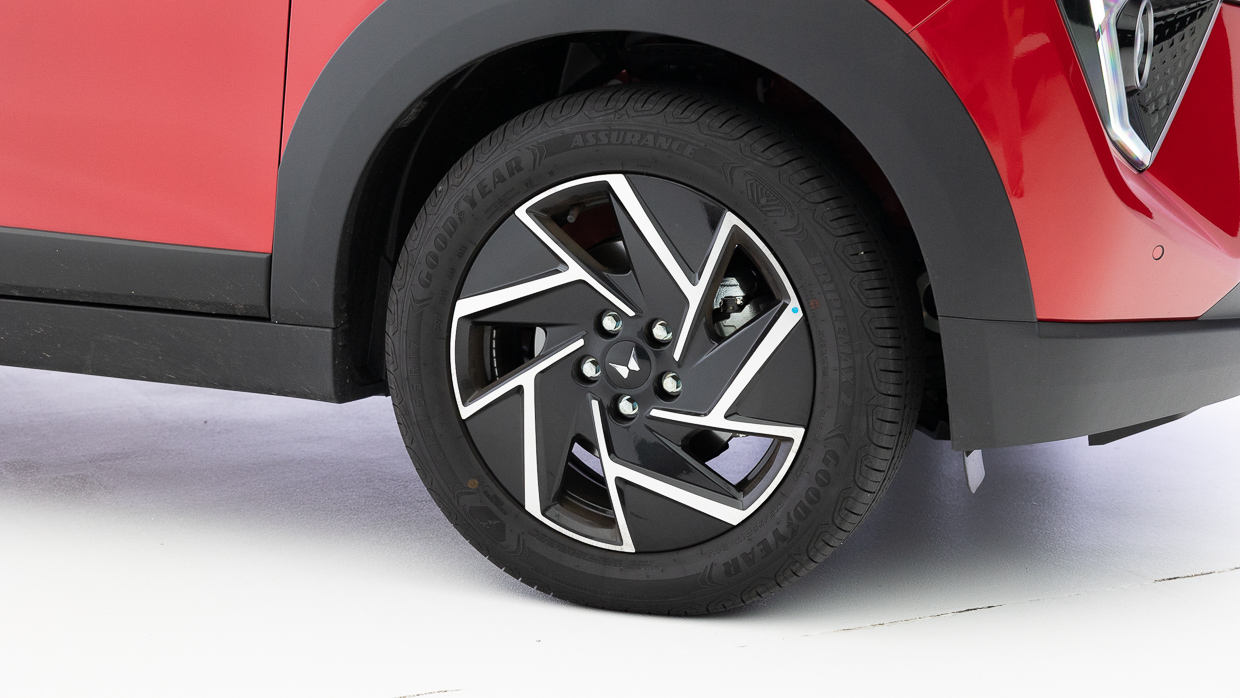
Features fitted to the high-spec AX7L variant on test include:
Prior to August 31st this year, the XUV3XO was officially the cheapest SUV in Australia, with prices pitched $500 cheaper.
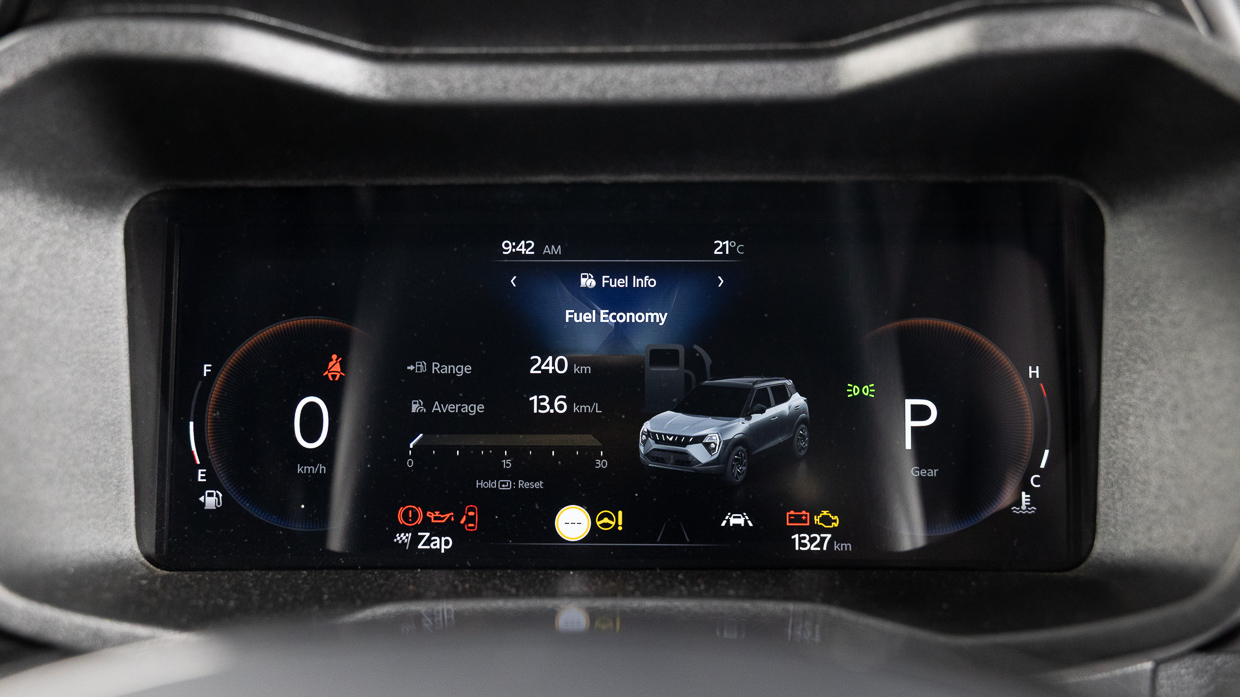
In its current form, the XUV3XO shares the title of the cheapest SUV in Australia with the Chery Tiggo 4, with rivals including the Mazda CX-3 (from $32,990 driveaway), Toyota Yaris Cross (from $35,780 d/a), Suzuki Fronx (from $29,990 d/a), Kia Stonic ($28,790 d/a in NSW), Hyundai Venue ($26,240 d/a in NSW), and Skoda Kamiq ($33,990 d/a in NSW) asking higher outlays.
For a brand better known for selling tractors, there are some surprisingly refined elements to the way XUV3XO drives.
In a segment dominated by underpowered, loud and naturally aspirated petrol engines mated to CVT transmissions which send revs skyward in search of power, the XUV3XO stands out with its cheerful 1.2L three-cylinder engine paired with a traditional six-speed torque converter automatic.
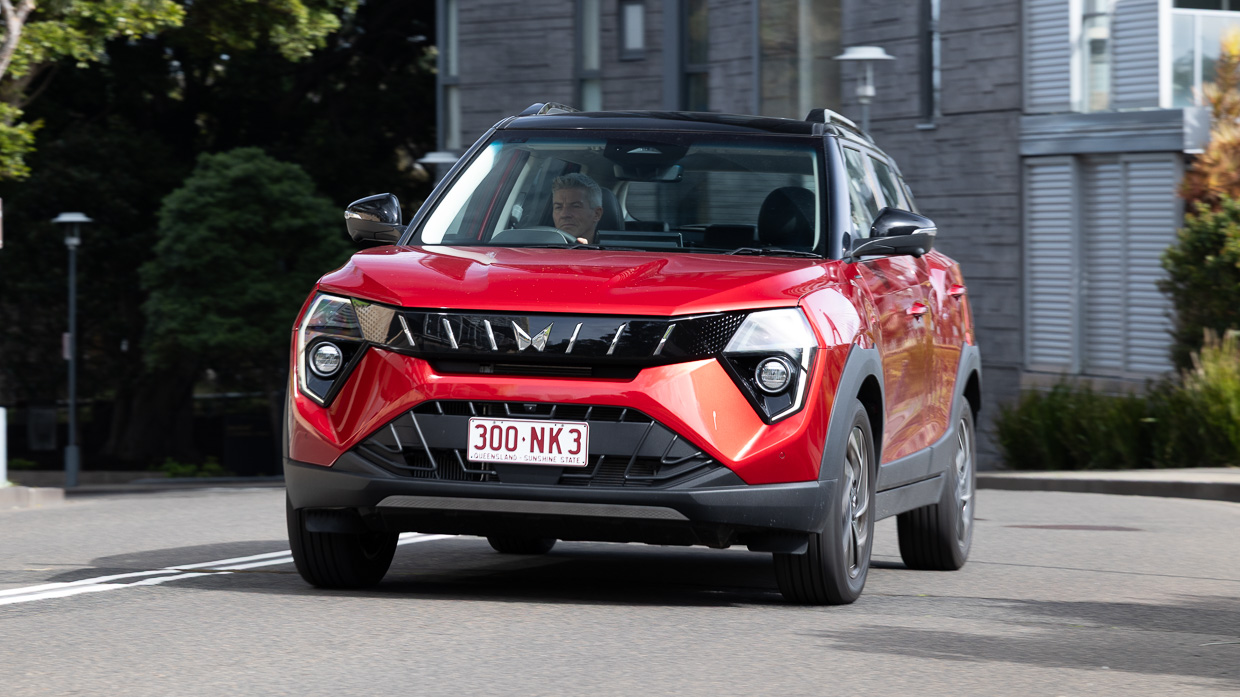
The combination means the XUV3XO produces its 200Nm torque peak at a low 1500-3500rpm, which is brilliant for low-speed urban driving and keeps engine noise hushed – good news, because sound insulation is lacking in the cabin of the Mahindra, as becomes quite apparent at highway speeds.
The headline power figure of 82kW at 5000rpm is less impressive, and can make overtaking on country roads at speeds above 80km/h challenging.
It might not be as refined or feel as punchy as the 85kW/200Nm 1.0L three-pot found in the likes of the Skoda circa-$34K Kamiq Select, but the XUV3XO is considerably cheaper. Power is sent to the ground via the front wheels, with no AWD options available at present.
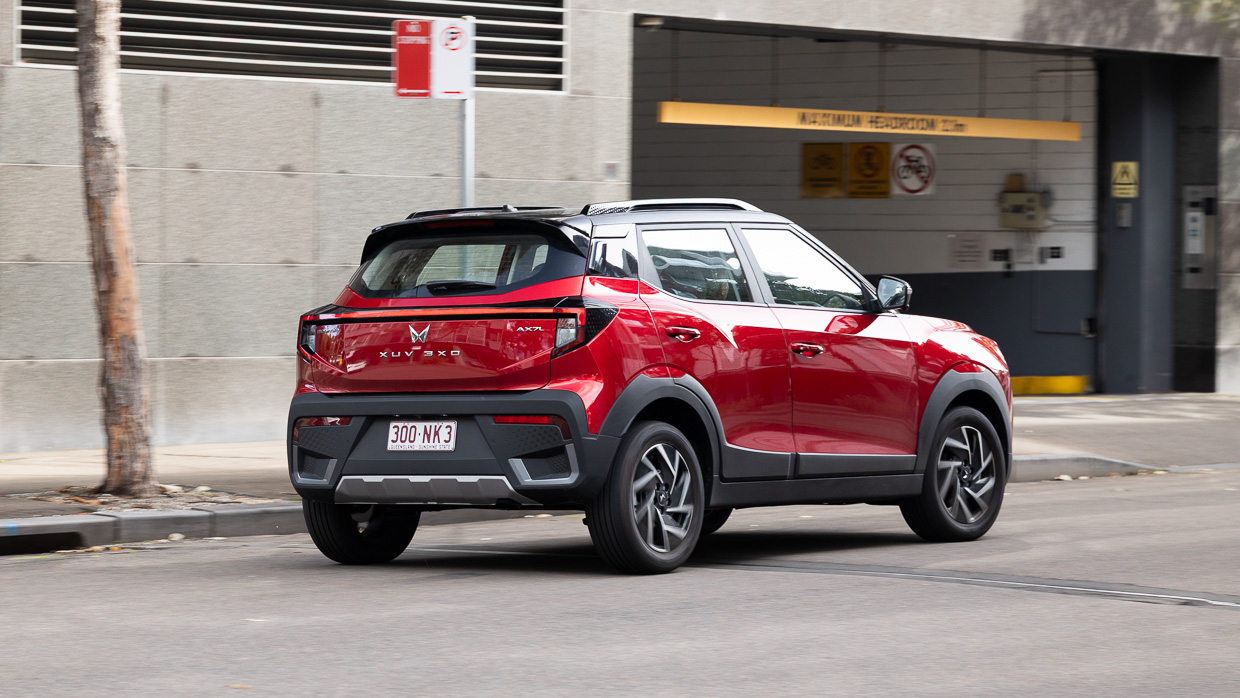
We noted mixed experiences when sampling the stop-start system with different XUV3XOs, with one review unit at launch providing a peppy and relatively smooth motoring from a standstill, while our follow-up tester was slow and rough to respond.
There is a bit of fun to be had in low- to mid-speed corners with the XUV3XO, with the short wheelbase, tiny wheels and relatively low ride-height for an SUV making it feel relatively playful.
At higher speeds, the short wheelbase and the firm nature of the suspension can make the XUV3XO feel unstable in a way most modern cars seem to have ironed out in recent years.
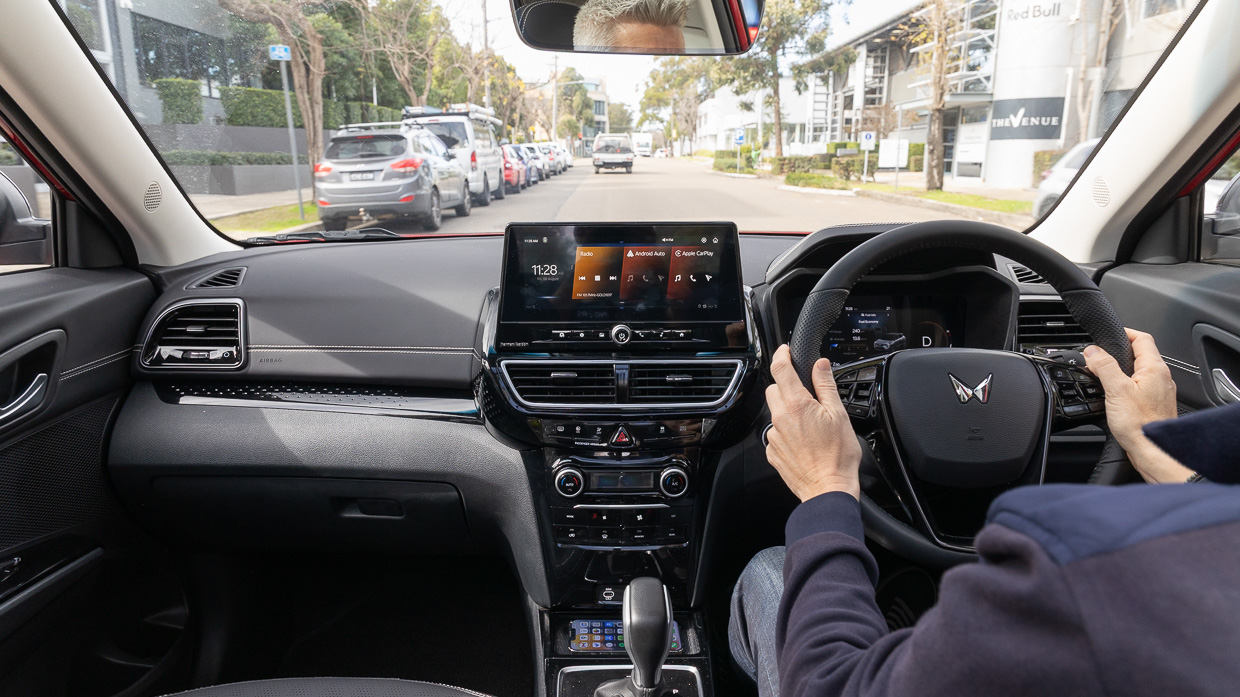
Making things more difficult is the driver is left partly ‘blind’, with no discernible feedback felt through the steering wheel to feel and react to the road – and yet this is only the start of the Mahindra’s steering woes.
Editor Jez Spinks labelled the XUV3XO’s steering the worst he has ever felt in any new vehicle in over the several decades of his motoring career – and it really does have to be experienced to be believed.
After a little over half an hour of driving, my shoulders (which do see a gym from time to time) began to ache from simply muscling the XUV3XO along the highway in a normal fashion, providing normal small steering inputs to keep the SUV in its lane.
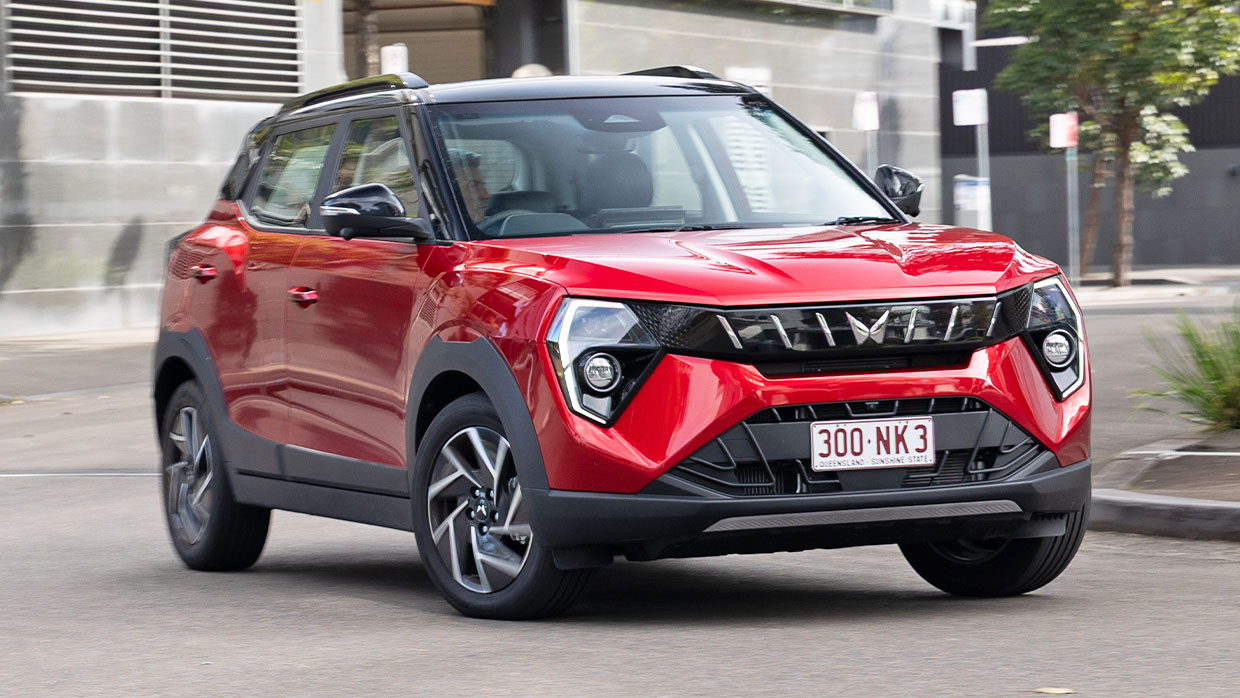
This isn’t the fault of over-zealous lane-keep assistance technology; rather, the power steering appears to be wound all the way off at highway speeds, and then comes back on with unbelievable intensity once you slow down to city speeds.
As a result, the XUV3XO requires both sharp concentration and muscle-power to be driven properly; it’s a tall ask from buyers after a relaxed motoring experience.
In many ways, the interior of the Mahindra is a breath of fresh air.
With the segment dominated by screen-heavy and button-scarce rivals from China, who often have a ‘fix it in post’ mentality when it comes to unreliable or confusing operating systems, the simplicity and usability advantage is welcomed.
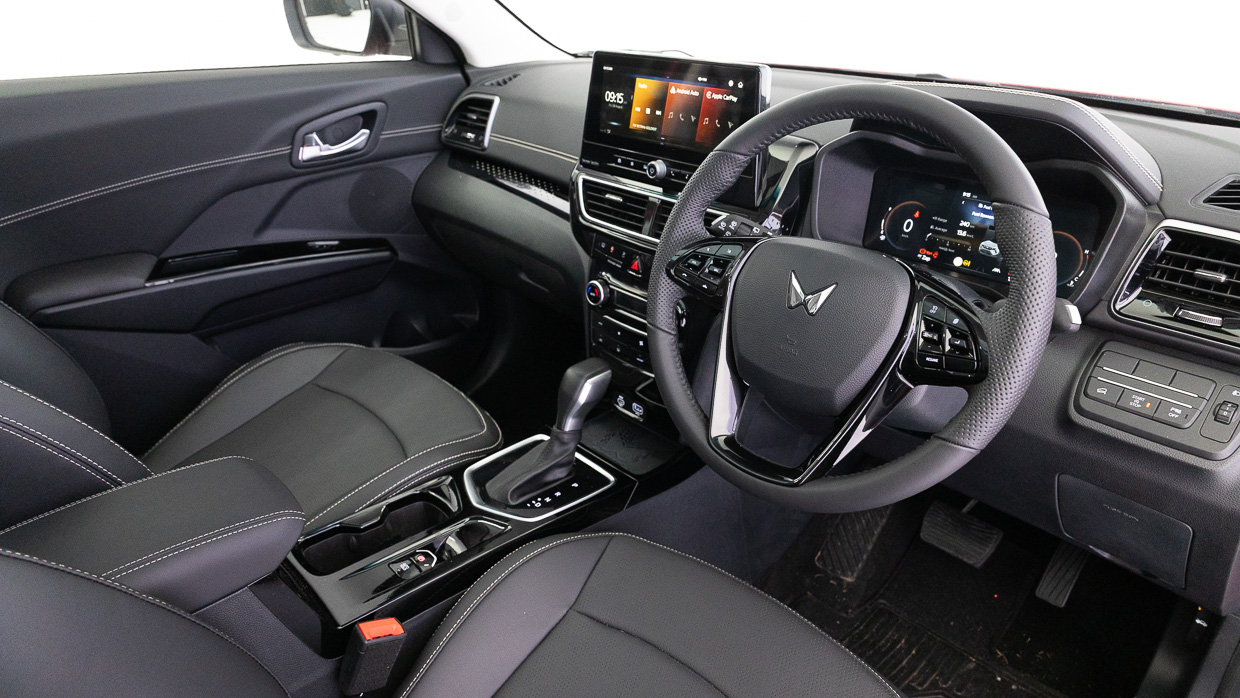
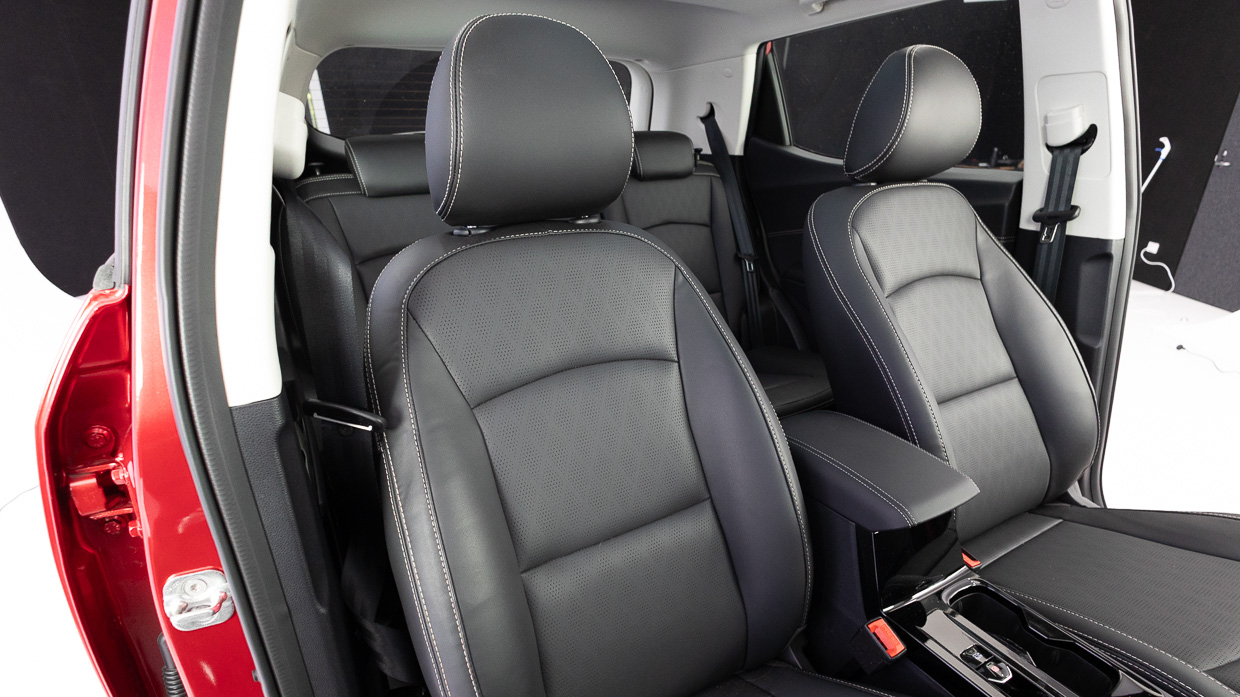
Dedicated dials and buttons are assigned to the climate control, a volume knob is found logically placed under the 10.25-inch centre multimedia screen and the setup is complemented by a litany of buttons on the steering wheel.
It feels old school, because it is. The XUV3XO is fundamentally an old car, but it has been modernised with features such as a digital driver’s display and a wireless phone charger.
The seven-speaker Harman Kardon stereo is another surprising addition to a vehicle at this price point, with decent audio clarity and depth to the sound, but it’s fighting an uphill battle against exterior road noise thanks to the lack of sound deadening in the cabin.
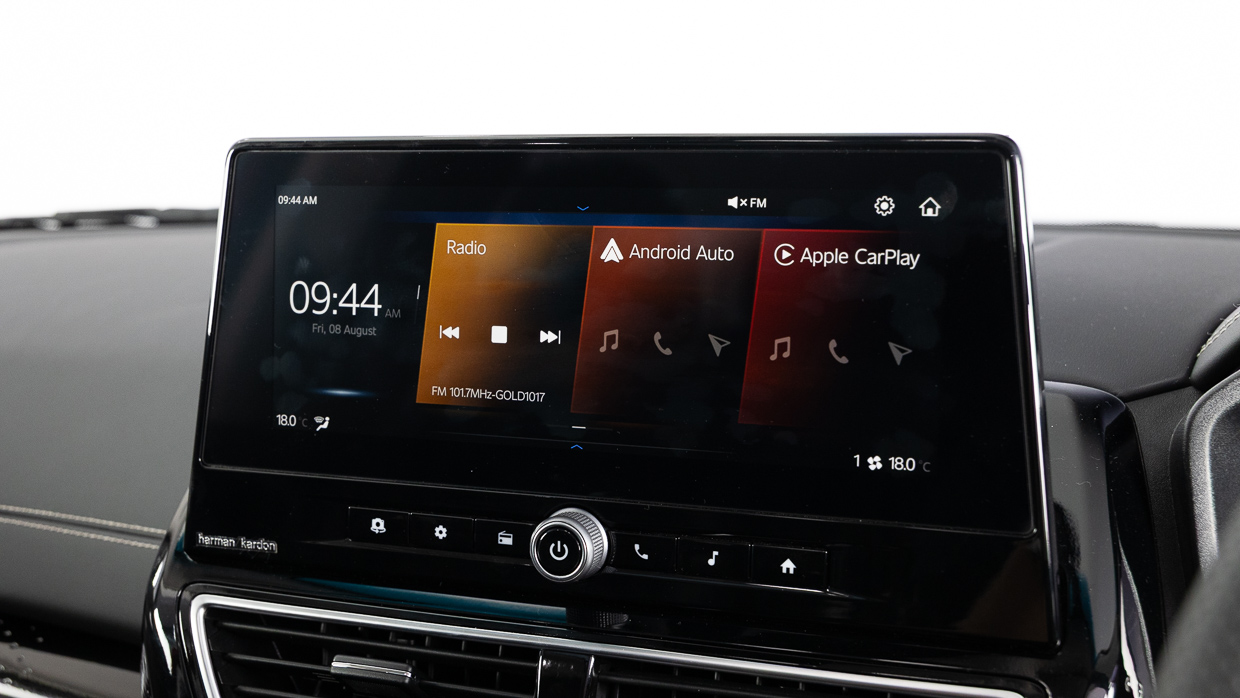
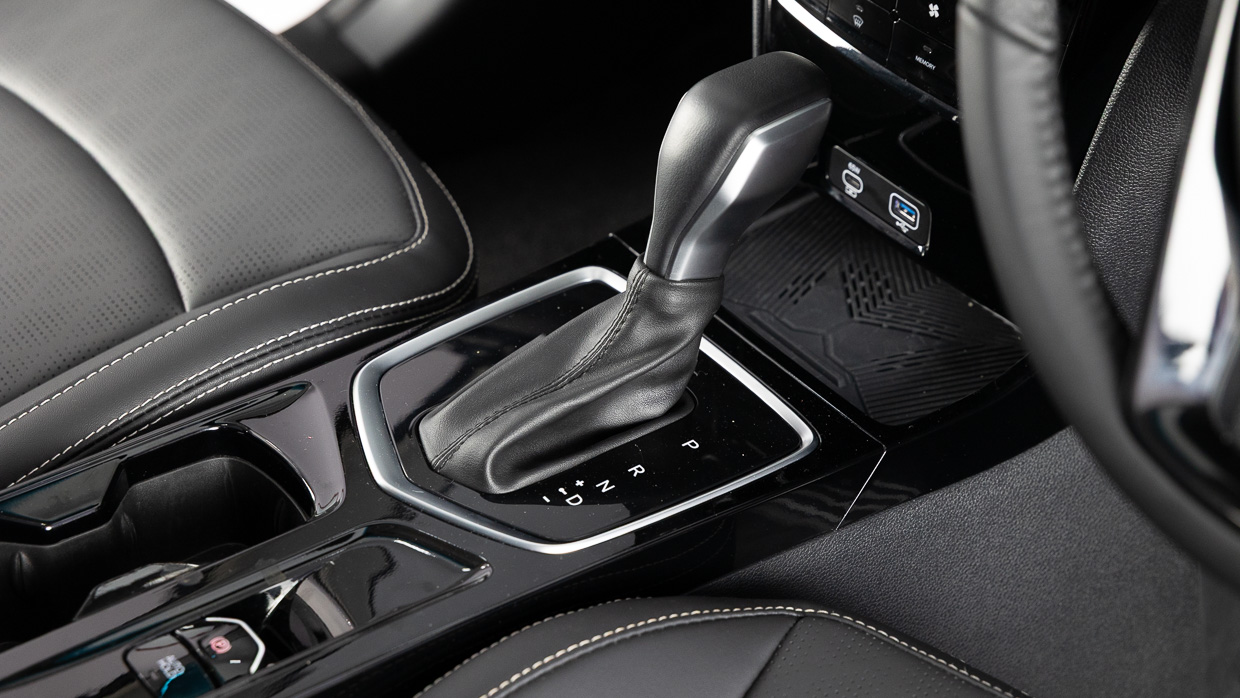
Material quality is surprisingly pleasant inside the cabin of the Mahinda, with a leather steering wheel fitted as standard and synthetic leather material across the door tops in both the front and rear on the AX7L – even the headliner feels surprisingly lush.
But it doesn’t take long to find shoddy workmanship, with the driver’s seat in our initial review unit becoming increasingly loose the more we drove it, while a follow-up XUV3XO had a rattling back seat and water ingress issues due to poor sealing on the doors.
Considering the XUV3XO is less than four metres long, the space inside is remarkable, with ample room to sit behind my own driving position set for my 182cm-tall frame.
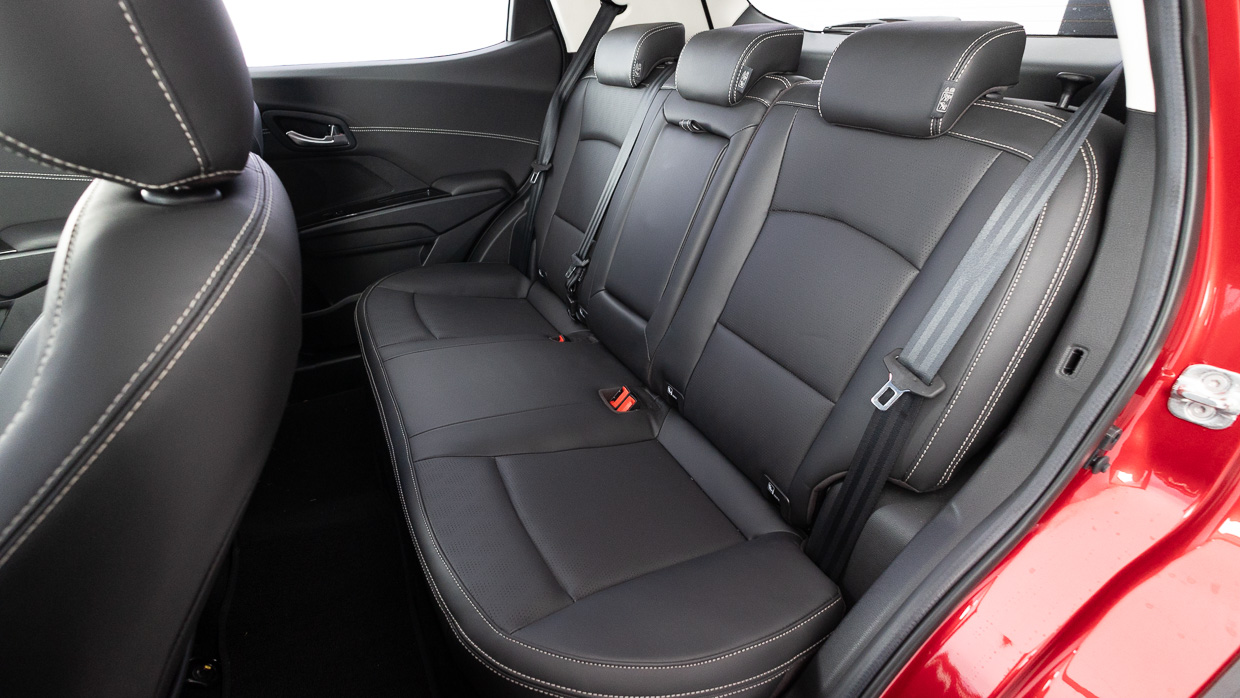
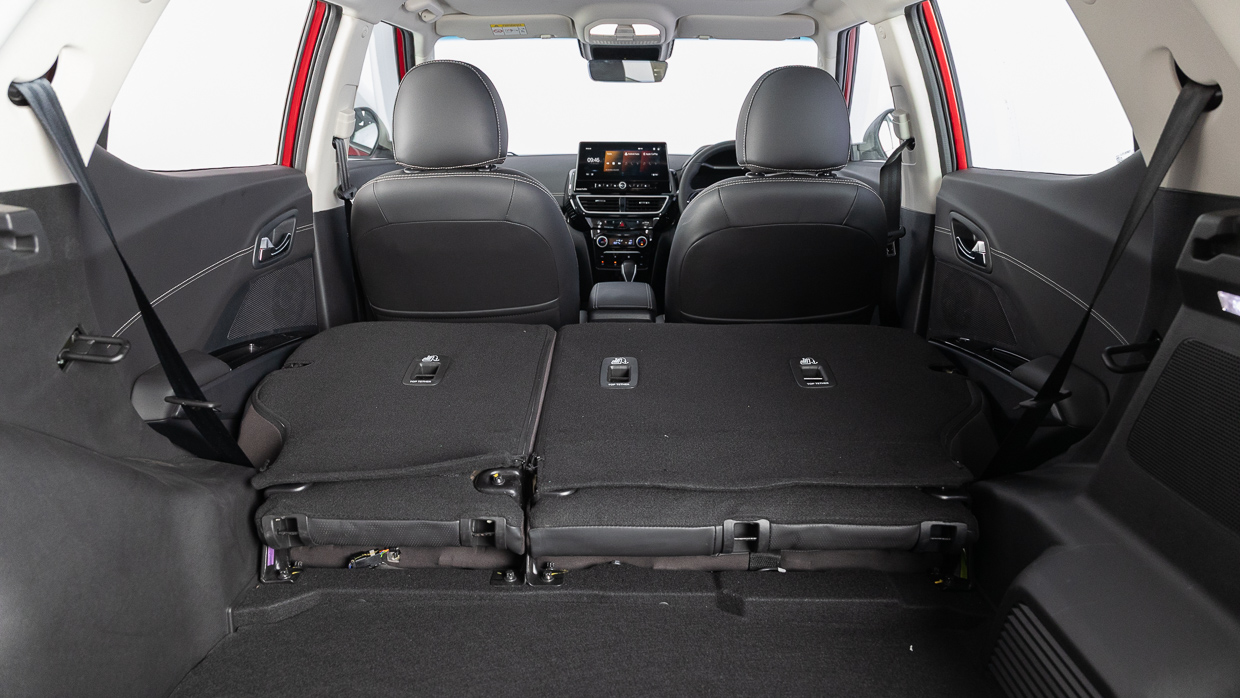
While it lacks much in the way of depth, the 364L boot is tall, useful and includes a space-saver spare under the floor. If you need more space, the rear seats fold 40/60 but there is a substantial step up in height from the boot floor.
At present, the XUV3XO does not come with a rating from local testing authority ANCAP. Its five-star rating under India’s relatively new (2023 introduced) and more lenient Bharat NCAP is perhaps not an accurate comparative barometer.
Mahindra insists that it intends to test the XUV3XO locally to prove its mettle under stricter local rules, but only after it has been given a physical upgrade designed to better suit ANCAP’s next round of protocols due to come into effect in 2026.
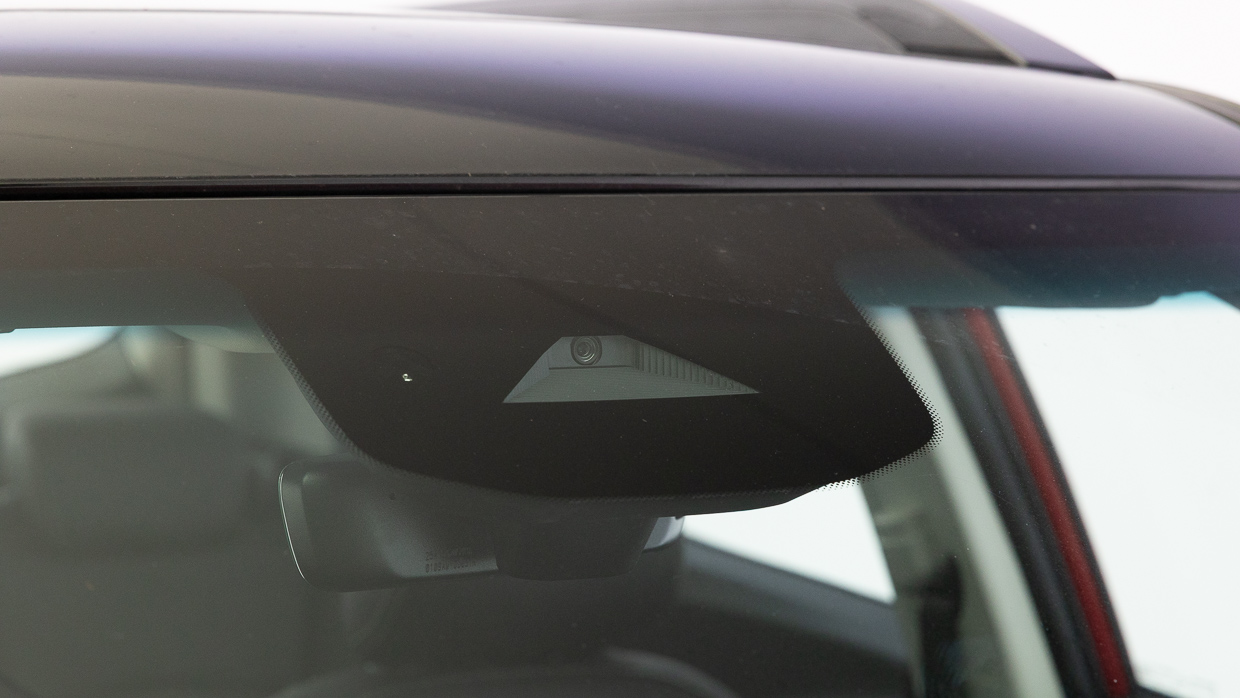
For now, Mahindra insists the XUV3XO is a safe car, but given the brand is still reeling from the zero-star rating given to its Scorpio 4WD earlier in 2024, you’d be forgiven for being wary.
As standard, the XUV3XO features a healthy list of features:
The overall tuning of the driver assistance technology is certainly better than some in this segment, though we still found ourselves turning off the lane-keep assistance, which is too intrusive.
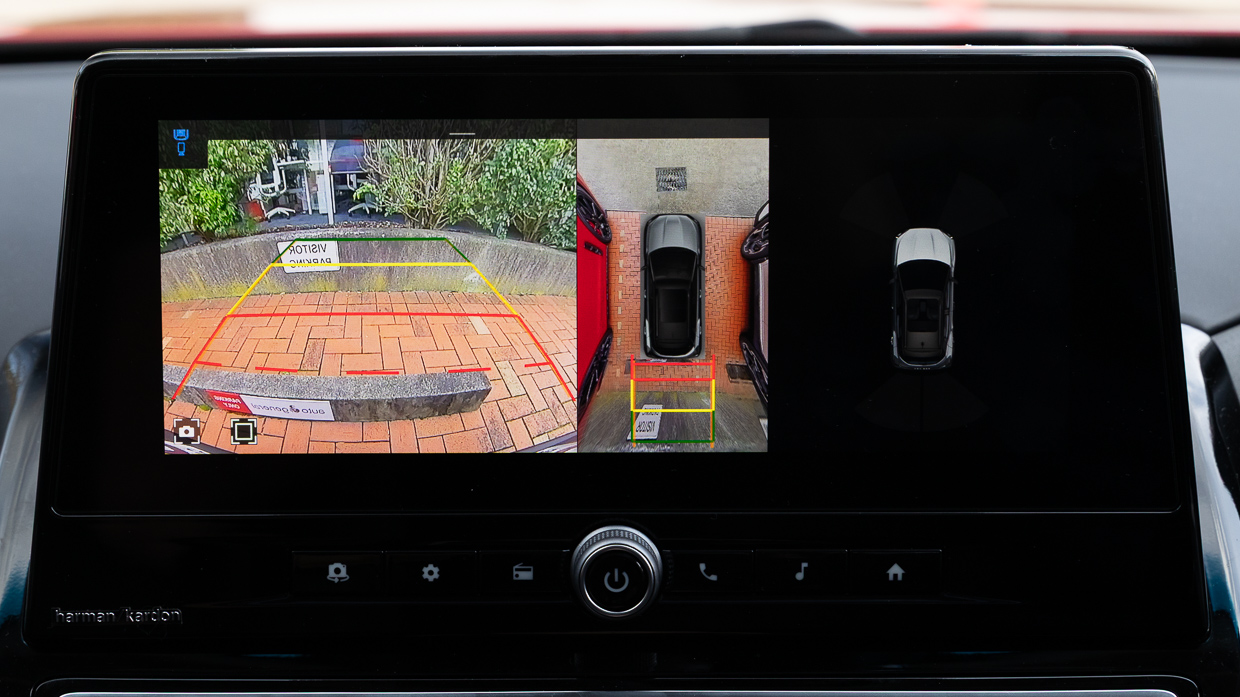
Stepping up the AX7L adds front parking sensors in addition to those in the rear, which while welcome, we found to be quite oversensitive in practice.
Also included is a decent-quality 360-degree camera system, which is a rarity at this price point and will be helpful for newer drivers.
The official combined fuel consumption of the tiny 1.2L engine is 6.5L/100km, with our testing returning a fairly unimpressive 7.6L/100km.
Given the tiny 42-litre fuel tank, that works out to a range of just 552km between fill-ups.
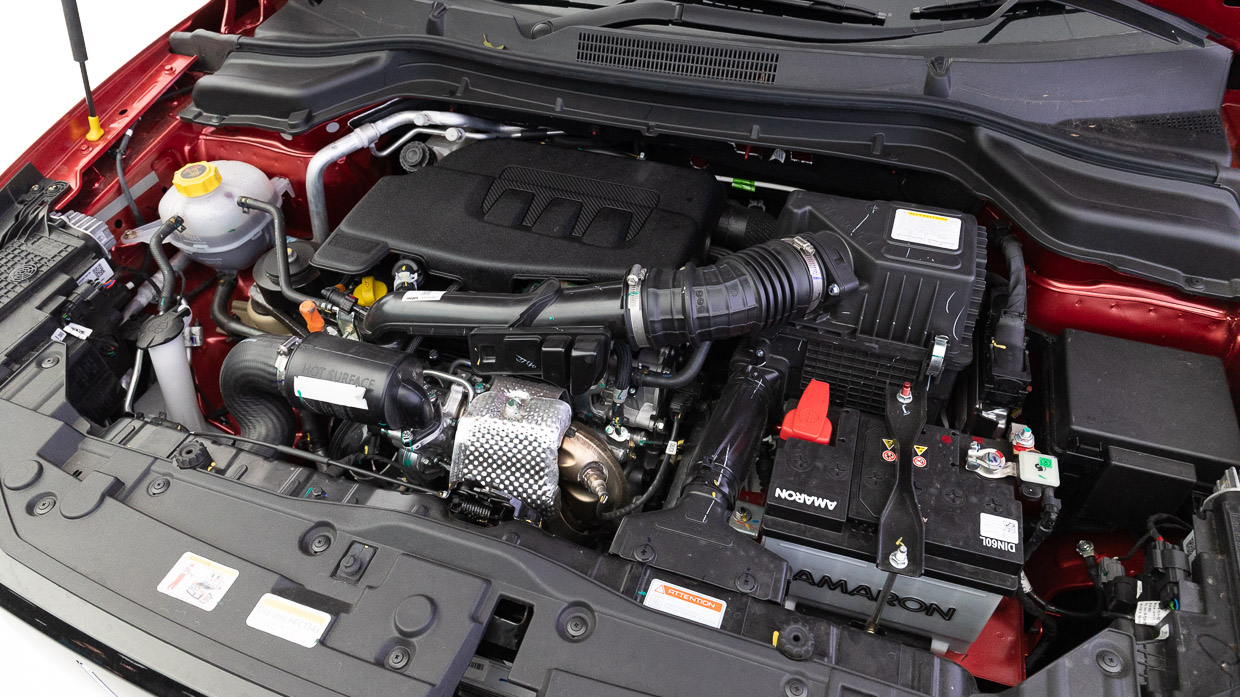
Mahindra says the XUV3XO can run on 91-octane fuel when needed though 95 is recommended, which does impact ongoing running costs.
It’s a long way from the segment leading hybrids such as the Toyota Yaris Cross Hybrid with a 3.8L/100km claim (that we’ve independently verified), and even the Suzuki Fronx claims 4.9L/100km using purely petrol power.
Serving is capped at a reasonable $1994 over six years or 85,000km, with intervals of every 12 months or 15,000km (excluding the first major service, which is limited to 10,000km).
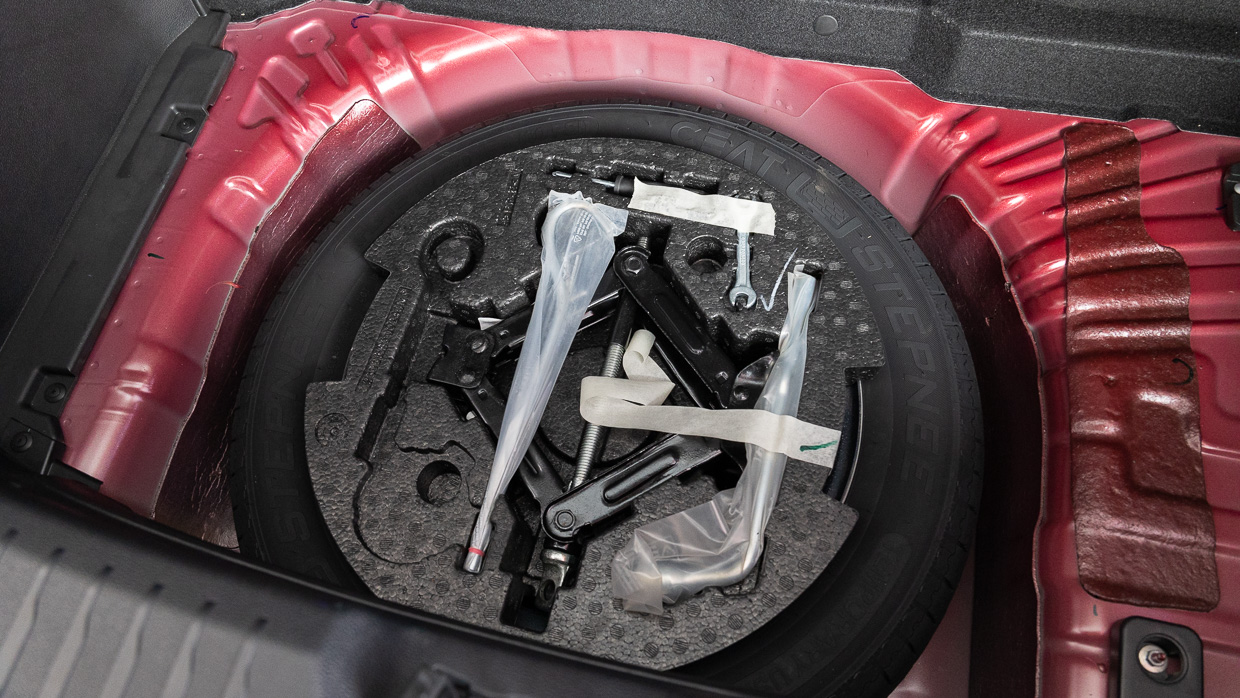
Warranty coverage is a generous seven years, though the maximum distance is limited to 150,000km when many rivals such as the Hyundai Venue are seven-years with unlimited distance.
From its charming, pug-like exterior styling to its exceptional interior cabin space and a rorty little three-cylinder engine, the XUV3XO is a likeable vehicle that stops short of being recommendable in its current form.
Key questions remain over the credibility of its safety credentials in a segment sought out by young and inexperienced drivers, who will need to wrestle with the occasional moments of instability and woeful steering tune that makes the XUV3XO a challenging drive.
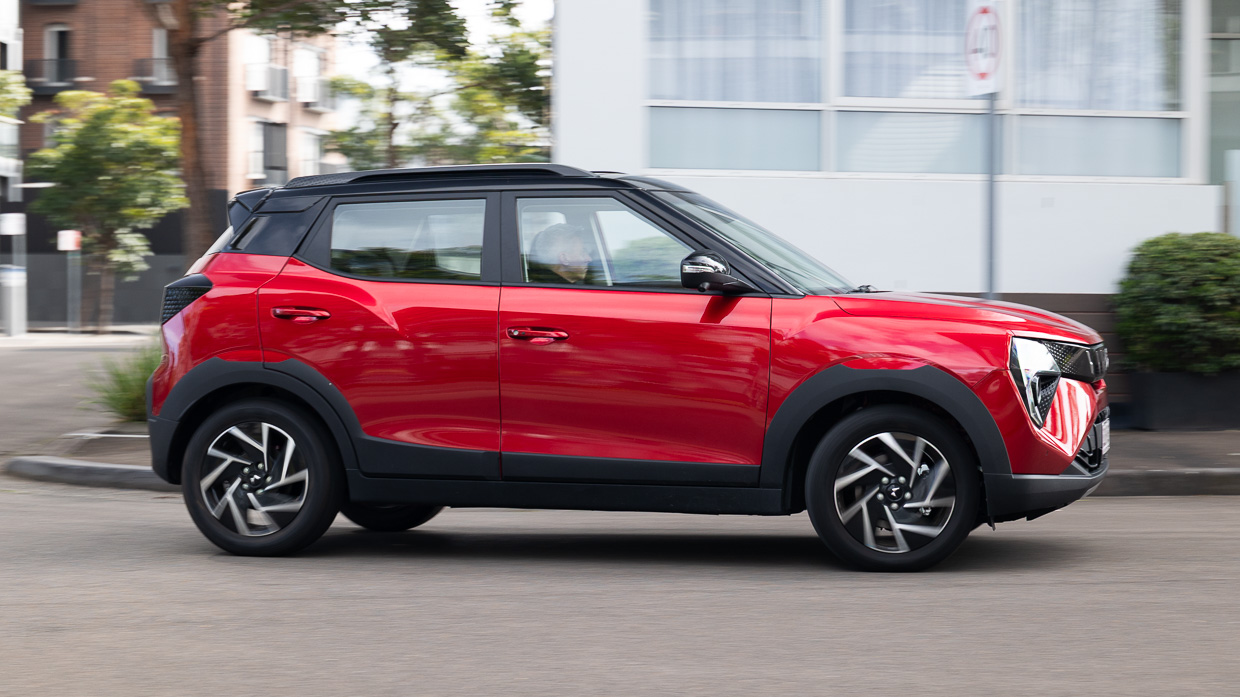
Worrying build quality issues across multiple brand-new review units don’t help the XUV3XO’s case either; hopefully, these issues are ironed out in the coming update booked for 2026.
The cheap small car segment may be small and increasingly more expensive, but when solid options such as the Hyundai Venue and Kia Picanto hatch still remain available, the argument for taking a punt on Mahindra’s smallest SUV needs to be based on more than just looks alone.
Key specs (as tested)
About Chasing cars
Chasing Cars reviews are 100% independent.
Because we are powered by Budget Direct Insurance, we don’t receive advertising or sales revenue from car manufacturers.
We’re truly independent – giving you Australia’s best car reviews.
The estimate provided does not take into account your personal circumstances but is intended to give a general indication of the cost of insurance, in order to obtain a complete quote, please visit www.budgetdirect.com.au. Estimate includes 15%^ online discount.
^Conditions Apply
Budget Direct Insurance arranged by Auto & General Services Pty Ltd ACN 003 617 909(AGS) AFSL 241 411, for and on behalf of the insurer, Auto & General Insurance Company Limited(ABN 42 111 586 353, AFSL 285 571).Because we don’t know your financial needs, we can’t advise you if this insurance will suit you. You should consider your needs and the Product Disclosure Statement before making a decision to buy insurance. Terms and conditions apply.
Indicative quote based on assumptions including postcode , 40 year old male with no offences, licence suspensions or claims in the last 5 years, a NCD Rating 1 and no younger drivers listed. White car, driven up to 10,000kms a year, unfinanced, with no modifications, factory options and/or non-standard accessories, private use only and garaged at night.
^Online Discounts Terms & Conditions
1. Discounts apply to the premium paid for a new Budget Direct Gold Comprehensive Car Insurance, Third Party Property Only or Third Party Property, Fire & Theft Insurance policy initiated online on or after 29 March 2017. Discounts do not apply to optional Roadside Assistance.
2. Discounts do not apply to any renewal offer of insurance.
3. Discounts only apply to the insurance portion of the premium. Discounts are applied before government charges, taxes, levies and fees, including instalment processing fees (as applicable). The full extent of discounts may therefore be impacted.
4. We reserve the right to change the offer without notice.